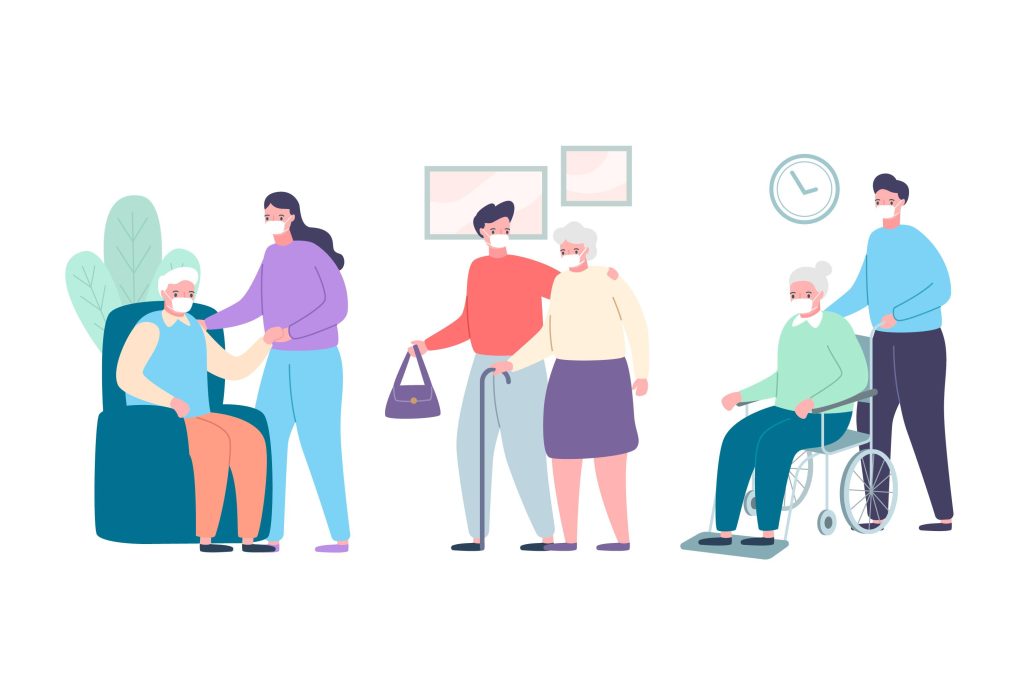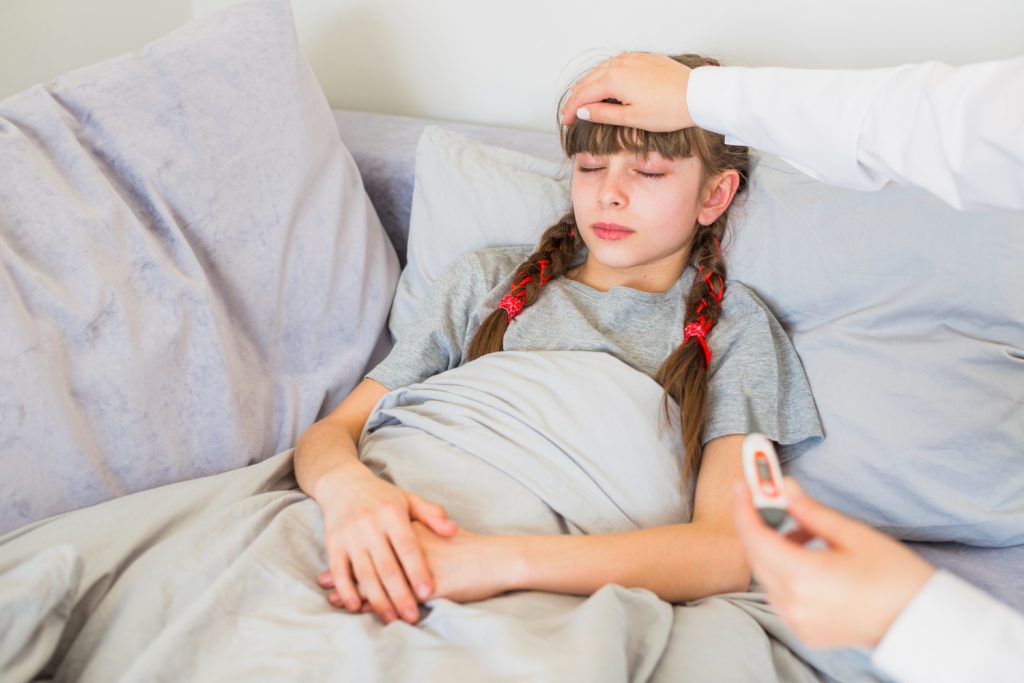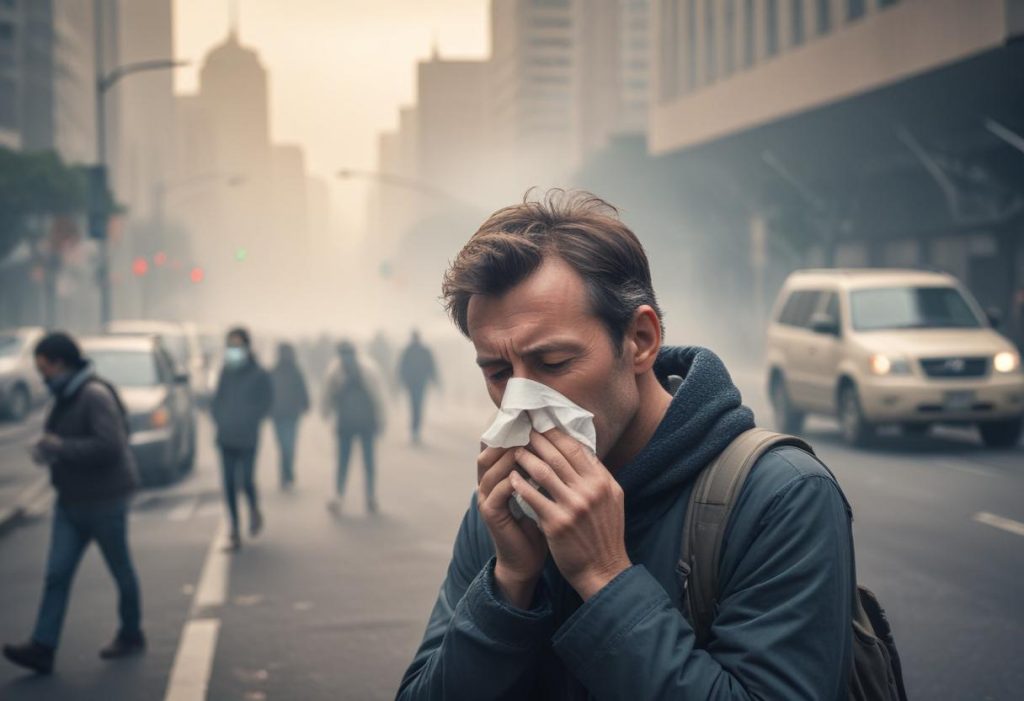In the process of aging we have certain changes in our body sometimes leading to various health complications. For instance, the National Council on Aging estimated that about 92% of senior citizens in the United States have at least one chronic health condition, and 77% have at least two.
It empowers seniors with the necessary knowledge over heath complications prevailing in the society and how to deal with them. In this article we are going to discuss about some of the common health problems in senior citizens and their solutions.
7 Health Problems in Senior Citizens
Following are seven main health problems in senior citizens and their possible treatments.
1. Heart Disease
Cardiovascular diseases are one of the biggest health problems in older people. The aging processes can cause detrimental changes in the function of the heart and blood vessels and can result in illness such as coronary artery disease, heart attacks, and heart failure can occur. Generally, heart disease is a leading cause of death in people according to the results of a survey conducted among those who are 65 years and above.
How to manage:
Healthy Diet: Cut down on products containing saturated fats and avoid foods with trans fats while choosing more of fruits, vegetables, and whole grains.
Regular Exercise: The goal here should be 20-30 minutes of daily walking or swimming, for instance.
Avoid Smoking and Limit Alcohol: These can certainly enhance its performance adding value to the heart’s functionality.
Regular Check-ups: Monitor the blood pressure, cholesterol, and other indicators related to heart concerns using your physician’s assistance.
Checkout: The Importance of Health and Wellbeing, Ways to Improve It.

2. Diabetes
Diabetes is a general term that describes a situation when the body is incapable of getting sugar to break it down and maintain high amounts in the circulatory system. It is estimated that around one in four older adults at the age of 65 and above suffer from diabetes; this condition is dangerous and may lead to other serious health problems in senior citizens including kidney disease, heart disease, and poor eyesight.
How to manage:
Healthy Eating: Some of the advisable measures include ensuring you consume a diet that has little sugar and carbohydrates.
Stay Active: Exercise also aids in regulating blood glucose levels and out also has a positive effect on weight loss as shown below.
Monitor Blood Sugar: There is always need to ensure that the blood sugar levels are regulated so as to avoid getting high.
Medication Adherence: It is immensely important to take diabetes medications on time in the recommended dosage to help manage the condition and prevent the development of complications.
3. Arthritis
Arthritis can be considered a common health problems among seniors, as it is present in 49% of individuals who are 65 years or older. This is characterized by pain, stiffness, or swelling in the joints thus interfering with tasks that are performed on a daily basis.
How to manage:
Stay Active: Avoid activities that put pressure on the joints while exercising so as to reduce the chances of stiffness and chronic pain.
Healthy Diet: Modify your vitamins; to decrease inflammation take foods that are rich in omega-3 fatty acid such as fish.
Weight Management: That means fat under the skin and within muscles also leads to increased stress on the bones that form the joints during normal movements.
Medical Treatment: Consider getting prescribed some medications for pain relief, or seek treatment plans that can assist in increasing the range of motion.
4. Osteoporosis
Osteoporosis is a condition where the bones become thin and fragile therefore increasing the chances of getting fractures. For example, it is often seen in women of postmenopausal age, but it is not an exclusive disease of women and can also affect men.
Checkout: Women’s Health Checkups
How to manage::
Calcium and Vitamin D: The violated component is promoted by making sure that the required nutritional intake is obtained through the diet as well as through supplements.
Weight-Bearing Exercises: Exercises such as walking and jogging or weight lifting are known to help build strong bones.
Avoid Smoking and Excessive Alcohol: These can lower down Bone mineral density.
Fall Prevention: Ensure the home has no tripping hazards, install rails/ bars on the walls that include grab bars.
5. Respiratory Diseases
Lung diseases such as COPD and asthma are well known to be common health problems in older people and this is attributed to unhealthy habits such as exposure to air pollution and smoking.
How to manage:
Avoid Smoking: Smoking is worse for the lungs and one should quit smoking if they care for their health.
Exercise: Lung Function: It is a well-established fact that moderate exercise or physical activity on a regular basis is beneficial for the lungs. It can help to prevent health problems in older people
Regular Check-ups: Sequentially it is necessary visit a doctor and keep track of the state of lung.
Healthy Environment: The fourth is to minimize humanity’s contact with air pollutants and to always improve indoor air quality.
6. Mental Health Issues
Depression, anxiety, dementia and other mental conditions continue to be dominant health issues in the elderly. Mental health problems are becoming a prevalent issue because according to the World Health Organization, 15% of the elderly population over the age of 60 have mental disorders.
How to manage:
Stay Connected: Stay in touch with family and friends and where necessary do so through video call and other digital means.
Stay Active Mentally and Physically: As an adult, practice activities that require the use of the brain such as, solving puzzles or taking up a new sport.
Seek Help: Don’t hesitate to seek professional help if you notice signs of depression or anxiety.
Healthy lifestyle: Regular exercise, a balanced diet, and adequate sleep can improve mental health and reduce health issues in the elderly.

Checkout: Top 10 Ways to Protect Your Health from Climate Change
7. Sensory Impairments
For instance, vision and hearing are common health problems in older people hence may have some level of loss. The CDC also indicates that approximately 16 percent of adults are at least 70 years old, and more than four out of ten have a type of visual impairment.
How to manage:
Regular Screenings: Go for eye and ear checkups often so that if anything is wrong the doctor will notice and correct it on time.
Use Aids: People who have access to glasses, hearing aids or other devices experience a better quality life.
Home Adjustments: There should be adequate lighting of the home to avoid tripping and all prohibited objects should not be put in the way.
Healthy Lifestyle: This is evidenced by the fact that a balanced diet also helps to preserve of the other sensory functions as mentioned above should not be exposed to loud noises.
Conclusion
There are a lot of changes that occur in the human body as he or she ages but a lot of these common health problems that come along with age can be avoided if the elderly have adequate information about the same or avoid some of the things which help in the development of some of these diseases.
Some of the possible factors that can make a difference in the health problems in senior citizens are: promoting healthy lifestyle, proper health checkups, and a friendly environment.
That is why they say it is not just about embracing number but embracing what those numbers bring, the quality of the years gained. One way of making adjustments for a healthy and happier old age is to be informed, active, and connected.






